MEDIA FOR CHANGE NETWORK
The African Development Bank and the Tree Plantations Industry
Published
5 years agoon
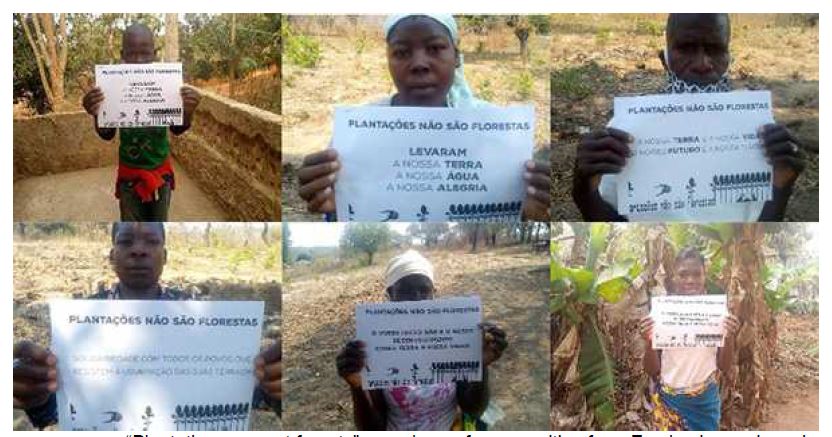
“Plantations are not forests”, members of communities from Zambezia province, in Mozambique.
In June 2019, the report “Towards Large-Scale Commercial Investment in African Forestry,”
(1) made a call to development-funding agencies, mainly from Europe, and the World Bank,
to provide aid money to a new Fund for financing 100,000 hectares of (new) industrial tree
plantations, to support the potential development of 500,000 hectares, in Eastern and
Southern Africa. This money, according to the report, would be crucial for private investors to
generate profits from the plantations. The new Fund would be headquartered in the tax
haven of Mauritius.
The African Development Bank (AfDB) and WWF Kenya produced this report with funding
from the World Bank’s Climate Investment Funds. The purpose of the report is to assist the
AfDB “in evaluating and designing alternative private funding models for commercial forestry
in Africa with a view to ultimately establishing, or aiding the establishment of, a specialized
investment vehicle for commercial forestry plantations.” The report declares that the
development agencies from Finland, Sweden, Norway, Denmark, Iceland, the United
Kingdom and The Netherlands are interested.
Essentially, the report is a praise to industrial monoculture plantations. It repeats, without
providing any evidence, most of the deceiving arguments that plantations companies use in
their propagandas to cover up the impacts of this devastating industry. The report’s focus is
on outlining the possible financial instruments that would attract companies to this region and
make their investments most profitable.
The report identifies “readily available projects with the potential to establish almost 500,000
ha of new forest (sic) on about 1 million ha of landscape, not including areas that existing
companies and developers are already planning to use for own expansion. It also excludes
early stage or speculative projects.” (italics added) In particular, the report identifies “viable
plantation land” in ten countries: Angola, Republic of Congo, Ghana, Mozambique, Malawi,
South Sudan, Tanzania, Uganda, Zambia and Zimbabwe.
The report further affirms that “Africa may be positioned to have the most profitable
afforestation potential worldwide.” And, then, it goes into explaining the possible investment
schemes that can make profit-oriented business and afforestation objectives (from climate or
voluntary targets) to be aligned and, thus, generate more profits for shareholders.
None of the pages in the report mention, however, not even indirectly, the overwhelming
amount of information that evidences the many negative impacts that industrial plantations
cause to communities and their environments. The report’s authors chose to ignore
plantations companies’ destruction of forests and savannahs; erosion of soils; contamination
and dry-up of water sources; overall violence inflicted on communities which include
restriction of movement, criminalization when resistance emerges, abuse, harassment and
sexual violence in particular to women and girls; destruction of livelihoods and food
sovereignty; destruction of cultural, spiritual and social fabrics within and among
neighbouring communities; few precarious and hazardous jobs; unfulfilled “social” projects or
promises made to communities; destruction of ways of living; rise in HIV/AIDS; and the list
goes on.
In front of this, on September 21, 2020, the International Day of Struggle against
Monoculture Plantations, 121 organisations from 47 countries and 730 members from
different rural communities in Mozambique that are facing industrial tree plantations,
disseminated an open letter to demand the immediate abandonment of any and every
afforestation programme based on large-scale monoculture plantations. (2)
The report, nonetheless, brags about having used a “sector-wide consultation exercise.”
For the authors, the sector includes “industry participants ranging from investors, industrial
players, and Non-Governmental Organizations (NGOs) through to forestry fund managers
(…) To further enrich and triangulate inputs to the study, the team also participated in three
forestry industry events and consulted with a broad range of personal contacts in the sector.”
The report also mentions consultations made to Development Finance Institutions and
agencies as well as oil and other industrial companies. It is clear however how communities
living in or around the almost 500,000 hectares of land identified to be transformed into
industrial monocultures, are not considered part of the sector. Nor were considered the many
communities and groups that have been resisting for decades the plantations in the countries
the report use as examples: Tanzania, Mozambique, Ghana and Brazil. (3)
The report further sustains that the NGO Conservation International confirmed “that it sees
potential in associating large global businesses with the forestry sector.” It further mentions
WWF and The Nature Conservancy – namely, the same category of NGOs mainly concerned
on promoting programs and policies that are aligned with corporate interests as an easy way
to keep their funding, projects and investments.
The purely financial focus of this report, with an eye on how to make most profits, should not
come as a surprise though. It was prepared by a company called Acacia Sustainable
Business Advisors (4), which was set up by Martin Poulsen, a development banker active in
rising private Equity Funds particularly in Africa. Equity Funds try to offer big returns by
spreading investments across companies from different sectors. (5) One co-author of the
report was Mads Asprem, the ex-director of Green Resources, a Norwegian industrial tree
plantation and carbon offsets company. Green Resources’ tree plantations in Mozambique,
Tanzania, and Uganda have resulted in land grabs, evictions, loss of livelihoods and
increased hunger for local communities. (6)
The report also shows the possible responses that investors could have to potential
“barriers”. One “structural barrier” identified is called “stakeholder relations,” a very vague
concept that seems to be related to possible conflicts with communities living in or around
the plantation projects. The term “conflicts” however is not mentioned once in the whole
report. The recommended response to this “barrier” is to “Use AfDB or other MDB
[Multilateral Development Bank] “honest broker” profile to convene stakeholders.” So it
seems that the strategy is to use development banks to make communities believe that the
project has the intention of improving (developing) people’s lives. Another “structural barrier”
identified in the report is “land tenure challenges,” to which the recommended response is to
“Follow FSC and other best practices.” This, of course, is recommended despite the vast
amount of information that shows how, in practice, FSC certifies as “sustainable” industrial
tree plantations that destroy peoples’ livelihoods.
When the climate and development agendas blend for profit
It is relevant to underline how the report makes use of the Sustainable Development Goals
(SDG) and the need for climate change mitigation and adaptation in the African region to
promote the further expansion of industrial plantations. It goes as far as to conclude that
“Channelling financial resources to such efforts [afforestation in the framework of the SDGs]
is within the mandate of international development organizations and special climate funds.”
The report also states that “preliminary interviews yielded information that some oil
companies are already forming alliances with sustainable forestry investment companies.”
This despite the fact that oil and gas companies are a fundamental driver of climate change,
which would undermine any possible positive outcome for the climate. Besides, these
‘alliances’ also give these companies an easy way out of any responsibility for their business
operations. This is clearly exemplified with the announcement of oil giant companies, such as
Italian ENI and Anglo-Dutch Shell, to invest in mega tree plantation projects to supposedly
“compensate” their mega levels of pollution they provoke. These two companies are
responsible for environmental disasters and crimes as a result of their fossil fuel activities in
many places across the globe. (7)
The African Development Bank is complicit in this strategy. While the Bank finances this
report encouraging the expansion of industrial plantations in Africa as a climate solution, it
finances in Mozambique a new gas extraction mega-project in the Cabo Delgado province,
undertaken by a consortium of companies including ENI.
This report is one more proof of how investments from profit-seeking corporations are put in
front of the social well being of people in the name of development and now also of
addressing climate change. There is no “unused” or “degraded” land available at the scale
proposed, which means countless people in Africa will be directly and indirectly affected if
this expansion plan materialise.
Another relevant omission of the report is how it bluntly assumes that the current scarcity of
investment in large-scale tree plantations in this African region is due to the few investment
opportunities available. However, the communities and groups on the ground organizing
almost on a daily basis to oppose the seizing of their lands and lives by these plantations
companies, have clear that their resistance has been successful to halt the expansion of
these plantations in many places. And as the open letter launched on September 21st said,
communities around the world “will certainly resist this new and insane expansion plan
proposed in the AfDB and WWF-Kenya.”
(1) AfDB, CIF, WWF, Acacia Sustainable, Towards large-scale investment in African forestry, 2019,
http://redd-monitor.org/wp-content/uploads/2020/09/towards_largescale_
commercial_investment_in_african_forestry.pdf
(2) Open Letter about investments in monoculture tree plantations in the Global South, especially in
Africa, and in solidarity with communities resisting the occupation of their territories, 2020,
https://wrm.org.uy/wp-content/uploads/2020/10/carta-con-firmas-en-inglés_upd201008.pdf
(3) See more information on resistance struggles against plantations here: https://wrm.org.uy/browseby-
subject/international-movement-building/local-struggles-against-plantations/
(4) Acacia Sustainable Business Advisors, https://www.acaciasba.com/about
(5) Groww, Equity Mutual Funds, https://groww.in/p/equity-funds/
(6) REDD-Monitor, How WWF and the African Development Bank are promoting lang grabs in Africa,
2020, https://redd-monitor.org/2020/09/22/international-day-of-struggle-against-monoculture-treeplantations-
how-wwf-and-the-african-development-bank-are-promoting-land-grabs-in-africa/ ; The
Expansion of Tree Plantations on Peasant Territories in the Nacala Territories: Green Resources in
Mozambique, 2018, https://wrm.org.uy/articles-from-the-wrm-bulletin/recommended/the-expansion-oftree-
plantations-on-peasant-territories-in-the-nacala-corridor-green-resources-in-mozambique/ ; WRM
bulletin, Green Resources Mozambique: More False Promises! 2018, https://wrm.org.uy/articles-fromthe-
wrm-bulletin/section1/green-resources-mozambique-more-false-promises/ ; WRM bulletin, Carbon
Colonialism: Failure of Green Resources’ Carbon Offset Project in Uganda, 2018,
https://wrm.org.uy/articles-from-the-wrm-bulletin/section1/carbon-colonialism-failure-of-greenresources-
carbon-offset-project-in-uganda/ ; WRM bulletin, Tanzania: Community resistance against
monoculture tree plantations, 2018,
https://wrm.org.uy/articles-from-the-wrm-bulletin/section1/tanzania-community-resistance-againstmonoculture-
tree-plantations/ ; and WRM bulletin, The farce of “Smart forestry”: The cases of Green
Resources in Mozambique and Suzano in Brazil, 2015, https://wrm.org.uy/articles-from-the-wrmbulletin/
section1/the-farce-of-smart-forestry-the-cases-of-green-resources-in-mozambique-andsuzano-
in-brazil/
(7) REDD-Monitor, NGOs oppose the oil industry’s Natural Climate Solutions and demand that ENI
and Shell keep fossil fuels in the ground, 2019, https://wrm.org.uy/other-relevant-information/ngosoppose-
the-oil-industrys-natural-climate-solutions-and-demand-that-eni-and-shell-keep-fossil-fuels-in the-
ground /
WRM Bulletin
Related posts:
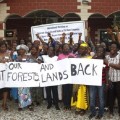
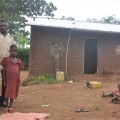 The enduring legacy of a little-known World Bank project to secure African plantations for European billionaires
The enduring legacy of a little-known World Bank project to secure African plantations for European billionaires
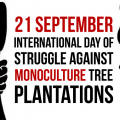 Witness Radio – Uganda, Community members from Mozambique and other organizations around the world say NO to more industrial tree plantations
Witness Radio – Uganda, Community members from Mozambique and other organizations around the world say NO to more industrial tree plantations
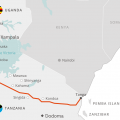 CSOs to African Development Bank: Don’t fund EACOP
CSOs to African Development Bank: Don’t fund EACOP
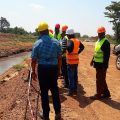 Open letter to African Development Bank and Nordic Development Fund: Address reprisals against Paten Clan
Open letter to African Development Bank and Nordic Development Fund: Address reprisals against Paten Clan
You may like
MEDIA FOR CHANGE NETWORK
UPDF General on the spot over fresh evictions in Hoima
Published
18 hours agoon
February 17, 2026
Over 1,000 residents in Kapapi Sub-County, Hoima District, are facing a second forced eviction from their ancestral land in three years, sparking widespread tension and anger among the community.
The latest evictions have been linked to a senior Uganda Peoples’ Defence Forces (UPDF) officer, Brigadier General Peter Nabasa, whom residents accuse of masterminding the displacement, allegedly in defiance of earlier government directives issued by the state minister for Lands, Dr. Sam Mayanja.
In October 2025, Minister Mayanja ordered that over 1,000 families who had been evicted from contested land in Kapapi Sub-County be resettled back onto their bibanja.
He also directed security commanders in the area to withdraw armed personnel and allow the affected communities to return. However, residents claim the situation has worsened, with renewed evictions pushing thousands into uncertainty once again.
The affected families, estimated to be over 1,000 and comprising over 4,000 people, include both cultivators and pastoralists. They were evicted from their homes in several villages, including Waaki North, Kapapi Central, Waaki South, Runga, Kiryatete, and Kiganja, all located in Kapapi and Kiganja sub-counties, Hoima District.
Residents insist the land has been their home for decades, passed down through generations, and accuse powerful individuals of using land titles and security enforcement to displace them.
“We were returned to our land in October last year on the orders of President Museveni and Minister Mayanja, but shortly after the elections, we were evicted again,” said Deusi Mugume, a resident of Runga.
“The Brigadier General came with armed security personnel and ordered us to vacate the land immediately. They even fired bullets in the air to disperse us, disrespecting the orders of both the Minister and the President.”
The residents were evicted from two titled pieces of land said to belong to businessmen and private individuals based in Hoima and Kampala. One of the contested titles measures approximately 2,545 acres (1,030 hectares) and is reportedly owned by seven individuals, including Ndahura William Gafayo, Aston Muhwezi, Alex Kyamanywa, Nathan Kiiza Byarugonjo, Bahuzya, Monica Rwashadika, and Wilber Kiiza. This land reportedly covers parts of Kapapi and Kiganja sub-counties.
Another title, measuring about three square miles, is said to belong to the family of the late Tito Byangire of Kigorobya, Hoima District. This land reportedly covers four villages, including Waaki South, Waaki North, Runga, Kapapi Central, and Kiryatete.
Brig Gen Nabasa claims he legally leased 700 acres of land from the Byangire family for 10 years starting in 2023.
“The residents were allowed to live there temporarily because elections were approaching, but they were supposed to leave immediately after the polls,” he said.
The residents, who are now living in temporary structures in Rwenyana, say their food and cash crops were destroyed after cattle were introduced onto the land following their eviction.
“We are going through many difficulties. We have no food, we are sleeping in makeshift shelters, children are not going to school, and we don’t know if we shall ever return to our land,” said Madinah Nyanjura and Nyarabiraho Cheya, both residents of Kapapi.
The Hoima Deputy Resident District Commissioner, Christopher Aine, blamed land brokers for misleading residents and bringing more people onto the contested land.
Minister Mayanja had previously directed the arrest of Brig Gen Peter Nabasa, Capt Rogers Karamagi, former Hoima Deputy Resident District Commissioner Michael Muramira Kyakashari, and William Ndahura Gafayo for allegedly illegally evicting residents from their bibanja land.
Mr Joshua Byangire, one of the administrators of the late Byangire estate, said the family has faced continued disruption and appealed to the government to buy off the land title.
“We have been disturbed on our family land. I request the government to buy off our land title. I don’t understand why soldiers have been deployed there, yet we are civilians and cannot access our property,” he said.
Original Source: monitor.co.ug
Related posts:

 Breaking: The army general, police chief, presidential representative, and others are appearing before the Hoima Chief Magistrate court today.
Breaking: The army general, police chief, presidential representative, and others are appearing before the Hoima Chief Magistrate court today.
 Court issues fresh criminal summonses against army general, police chief and presidential representative and others in a private criminal case.
Court issues fresh criminal summonses against army general, police chief and presidential representative and others in a private criminal case.
 Over 500 Kapapi families in Hoima district remain stranded after the district security committee fails to resettle them back on their land as directed by the minister.
Over 500 Kapapi families in Hoima district remain stranded after the district security committee fails to resettle them back on their land as directed by the minister.
 UPDF General, District Police Commander, and Presidential Representative defy Court summonses for the second time as DPP takes over the EACOP-PAP’s case.
UPDF General, District Police Commander, and Presidential Representative defy Court summonses for the second time as DPP takes over the EACOP-PAP’s case.
MEDIA FOR CHANGE NETWORK
Small-scale fishers and coastal communities are pushing to testify before a human rights commission investigating the causes of food inequality in South Africa.
Published
1 day agoon
February 17, 2026
Fisher women play a vital role in sustaining household food security, yet remain under‑recognised, excluded from permits, and denied equal income opportunities in the fishing sector.Photo Credit: The Green Connection.
By Witness Radio team.
South Africa produces enough food to feed its population, yet millions go to bed hungry every night.
According to Statistics South Africa’s General Household Survey 2024, released in 2025, about 14 million people experienced hunger, representing 22.2% of households reporting inadequate or severely inadequate access to food. The Northern Cape (34.3%), Eastern Cape (31.3%), and Mpumalanga (30.4%) recorded the highest levels of food insecurity.
One in four children in South Africa is stunted due to chronic malnutrition. In the Eastern Cape alone, 70 children under the age of five reportedly died from malnutrition-related complications between January and July 2025.
In response to the growing problem, the South African Human Rights Commission, a national institution established to support constitutional democracy, declared last year that it would hold a National Public Inquiry into the Constitutional Right to Food. This inquiry will examine how communities, corporations, laws, and policies shape food systems and seek to address the structural causes of hunger.
As a result, the investigation will try to describe a future in which food is once again understood as sustenance, dignity, and justice.
Thousands of small-scale fishers along South Africa’s 3,000 km coastline depend on marine resources for their livelihoods, highlighting their vital role in the nation’s food security and cultural fabric.
Many fishing families struggle to make ends meet, even though they harvest food from the ocean. The livelihoods and food security of about 28,000 small-scale fishermen are directly reliant on marine resources. Yet, existing policies-such as restrictive permits and limited market access-exclude them from full participation, perpetuating food insecurity.
For these communities, food systems are not abstract policy concepts. They shape daily survival, dignity, livelihoods, and cultural identity.
“As part of our submission, we emphasize that concrete policy changes-such as recognizing customary fishing rights and improving market access-will directly enhance the livelihoods and food security of small-scale fishers and coastal communities, making the case for urgent reform.” Says Buthelezi
The Green Connection, a registered non-profit organisation, works with coastal communities to promote environmental justice, human rights, and accountable governance.
In the submission, the Green Connection states that the inquiry is timely as it will examine the structural and economic dynamics that perpetuate hunger. “It will assess the concentration of power in the food value chain, affordability and access, land and tenure security, policy coordination, and the realization of the constitutional right to food. This includes its links to dignity, health, water, culture, and a healthy environment.” The submission reads.
The Green Connection further argues that the Commission’s examination of governance, participation, and accountability must include scrutiny of marine and ocean policy.
“Poor implementation of the Small-Scale Fisheries Policy, limited market access, inadequate infrastructure, and weak consultation processes continue to undermine the sector. Women – who make up less than 30% of participants – remain under-recognised. At the same time, young people leave coastal communities due to declining economic prospects,” says Khetha Buthelezi, Economics Officer at The Green Connection, adding that, “Food and the systems we put in place to produce it cannot be separated from human dignity, livelihoods, and cultural rights. These issues are not abstract policy debates. For small-scale fishing communities, food from the ocean is not merely a commodity – it is a foundation of identity, survival, and social cohesion.”
The organisation also raises concerns about the potential impacts of offshore oil and gas expansion under Operation Phakisa. It further adds that Seismic surveys, drilling, and increased shipping activity can threaten fish stocks and restrict access to traditional fishing grounds, thereby directly affecting food security and livelihoods.
“For small-scale fishers, these are not abstract environmental issues. It is about income stability, cultural survival, and the constitutional rights to food, livelihoods, and participation in decision-making, and protecting these rights and resources for future generations,” says Buthelezi
Several fishing communities consulted shared testimonies describing worsening conditions.
“While small‑scale fishers support around 28000 people in South Africa, many of us can no longer catch or sell enough fish to feed our own families. Walter Steenkamp says on behalf of Aukotowa Small‑Scale Fishers Co‑operative in Port Nolloth, Northern Cape.
Steenkamp adds that Decisions are often made without consulting them, which reflects an intended exclusion from decision-making. “We hope this inquiry will result in the recognition of our customary rights, the return of our fishing grounds, and for the government to listen to those of us who live from the sea, so that we can feed our families with dignity.”
According to Kristie Links from the Sal-Diaz Small-Scale Fisher Co-operative in Saldanha Bay, Western Cape, farmers are forced to use larger boats that they cannot afford. “We have no money for the bigger boats they want us to use, and the areas we are given have little or no fish.
Industrial boats continue to overfish, especially at night, while our communities struggle to put food on the table. This situation is destroying our livelihoods, our food security, and our right to be recognised as small-scale fishers,” Kristie adds.
The organisation argues that poor implementation of the Small-Scale Fisheries Policy, weak consultation processes, and inadequate infrastructure continue to undermine the sector.
“Our message to the SAHRC is clear. If South Africa is serious about tackling hunger and inequality, it must ensure food systems governance is transparent, inclusive, and accountable. Coastal communities are not asking for charity – they are demanding justice.” Buthelezi concludes
The deadline for written submissions has been extended to 27 February 2026, with public hearings scheduled for March during Human Rights Month.
Related posts:

 About 41 million people food insecure in E. Africa amid COVID-19 pandemic: UN
About 41 million people food insecure in E. Africa amid COVID-19 pandemic: UN
 63 million people food insecure in Horn of Africa: report
63 million people food insecure in Horn of Africa: report
 “Vacant Land” Narrative Fuels Dispossession and Ecological Crisis in Africa – New report.
“Vacant Land” Narrative Fuels Dispossession and Ecological Crisis in Africa – New report.
 Community land rights at stake amid looming large-scale investment interests
Community land rights at stake amid looming large-scale investment interests
MEDIA FOR CHANGE NETWORK
The Kenyan government insists on maintaining provisions of the Seed Act that the court nullified: farmers and legal experts question the motive.
Published
2 days agoon
February 16, 2026
By Witness Radio team.
Mr. Francis Njiri, a small-scale farmer from Makongo and a member of the Seed Savers Network Kenya, questions the spirit behind the Kenyan government and the Kenya Plant Health Inspectorate Service (KEPHIS) in appealing against the recent High Court ruling on seed rights, including saving and exchange.
The landmark judgment delivered in November 2025 declared key sections of the Seed and Plant Varieties Act unconstitutional, directly affirming farmers’ rights to save, share, and exchange seeds outside formal systems, which many smallholder farmers like Mr. Njiri see as a victory for traditional practices and their livelihoods.
15 smallholder farmers from the Seed Savers Network filed a constitutional petition in 2022, claiming that Kenya’s Seeds and Plant Varieties Act (SPVA) and the Seeds and Plant Varieties (Seeds) Regulations, 2016, have restrictive provisions that violate fundamental rights protected by Kenya’s Constitution, which the Kenya’s High Court in Machakos ruled in their favor.
According to court documents seen by Witness Radio, the Kenyan government and KEPHIS have appealedagainst the court ruling, claiming that the High Court judge misinterpreted key legal provisions, underscoring the ongoing legal battle over seed rights.
“Take notice that The Kenya Plant Health Inspectorate Service and The Attorney General, the above-named Appellants, appeal to the Court of Appeal against the whole of the above-mentioned decision,” documents seen by Witness Radio reveal.
“The Learned Judge erred in law and in fact by misinterpreting and conflating Sections 8(1) and 8A of the Seeds and Plant Varieties Act with Article 11(3)(b) of the Constitution, and by wrongly concluding that those provisions limit or undermine Section 27A, while in fact Sections 8(1), 8A and 27A operate harmoniously to give full effect to Article 11(3)(b) of the Constitution.
The Learned Judge erred in law and in fact by holding that Sections 8(1) and 10(4)(c), (d), (e), (f) and (g) of the Seeds and Plant Varieties Act, together with Regulations 6, 16 and 19 of the Seed and Plant Varieties (Seed) Regulations are unconstitutional based on discrimination under Article 27(2) of the Constitution, when no distinction had been demonstrated…” further reveals.
The government’s decision to appeal has alarmed farming communities and civil society, raising fears that their interests are being overlooked.
“I don’t think the government is working in the interests of farmers. We suspect these actions serve multinational corporations’ interests because farmers were not consulted in the first place.” Mr. Njiri says.
Mr. Njiri, who has practiced agroecological farming for years, is one of the petitioners in the case. Alongside other farmers from across the country, he challenged the constitutionality of provisions that restricted the use of farm-saved seeds. He argues that such laws disproportionately favored commercial seed companies while undermining indigenous seed systems that have sustained communities for generations.
According to him, the lack of consultation with smallholder farmers, who constitute the majority of Kenya’s agricultural producers, raises serious questions about whose interests are being prioritized.
For generations, farmers have saved, exchanged, and improved seeds-these practices are part of our heritage and vital for our survival. Decisions about seeds should involve those who depend on them most.
In the case that had been determined in favor of the local farmers, Advocate Wambugu Wanjohi says the Government of Kenya and KEPHIS were challenging mostly seed sovereignty, the right to save, share, and replant seeds, and the right to participate in seed policies.
“Now, the Seed and Plant Varieties Amendment Act aligned Kenya with UPOV of 1991, and seed exchange outside the normal certification process became illegal. And the consequence was that the government pushed indigenous seed systems underground.” He mentioned.
Wanjohi describes the High Court ruling as a constitutional milestone.
“This case was not simply about regulatory compliance. The Court approached it as a human rights matter. It examined whether criminalizing seed sharing unjustifiably limited constitutional rights such as the right to food, the protection of culture, equality, and fair administrative action,” he said.
“We argued on a constitutional basis. The farmers sought to have these sections declared unconstitutional because the Act and regulations unjustifiably limited the right to food and eroded cultural rights and equality.”
According to Wanjohi, the Court found that the impugned provisions disproportionately burdened smallholder farmers while privileging commercial seed interests.
“The Constitution does not permit legislation that effectively punishes the survival practices of small-scale farmers. The judgment reaffirmed that seed governance must align with constitutional protections,” he added.
Dr. David Kabanda, Director of the Center for Food and Adequate Living Rights in Uganda, views the ruling as significant beyond Kenya’s borders.
“Seed is not merely a commercial commodity; it is the foundation of food systems and community resilience. When laws shift control of seed away from farmers without meaningful participation, they raise fundamental legal and human rights questions,” Kabanda says.
He adds that the case introduces a constitutional perspective that could influence similar debates across East Africa, particularly in countries aligning seed laws with international intellectual property standards.
“Seed determines protection of our land, because in an ordinary African city, if you don’t have seed, then you cannot plant. Seed and food give land relevance in many communities. So, if someone takes our seed from you, especially in the current region where some countries, like Kenya, want to create what they call seed merchants and impose exorbitant fees on you to operate the seed trade or business, it is alienating people from the livelihood they should have. Because if any state or multinational takes away the seed, the propagating material, whether for food or agriculture, it is touching the nerve of your existence.” Kabanda added.
As the appeal process unfolds, farmers like Mr. Njiri say they remain committed to defending what they consider fundamental rights: the right to seed, the right to food, and the right to participate in decisions that directly affect their livelihoods.
“We will continue to stand firm. Seeds are our life. Without them, there is no farming, and without farming, there is no food. We will fight and fight and fight until we win. And we believe we shall win the entire battle. Because we wouldn’t let that freedom, which God gives, be taken away from us because someone wants to protect their interests or farmers’ interests,” he concluded.
With the government and KEPHIS appealing the High Court’s landmark decision, it is now more important than ever for judges, lawyers, and civil society across Africa to actively support farmers in defending their constitutional seed rights. “Strategic litigation has set a precedent on the continent, showing that courts can and must uphold food sovereignty and protect the rights of smallholder farmers.” Advocate Wanjohi added.
Related posts:

 Kenyan farmers secure right to share local seeds in court ruling
Kenyan farmers secure right to share local seeds in court ruling
 The EAC Seed & Plant Varieties Bill, 2025, is a potential threat to smallholder farmers, as it aims to disengage them from the agriculture business, according to experts.
The EAC Seed & Plant Varieties Bill, 2025, is a potential threat to smallholder farmers, as it aims to disengage them from the agriculture business, according to experts.
 Seed Sovereignty: Most existing and emerging laws and policies on seeds are endangering seed saving and conservation on the African continent.
Seed Sovereignty: Most existing and emerging laws and policies on seeds are endangering seed saving and conservation on the African continent.
 The Witness Radio and Seed Savers Network Joint Radio program boosts Farmers’ knowledge of seed and food sovereignty.
The Witness Radio and Seed Savers Network Joint Radio program boosts Farmers’ knowledge of seed and food sovereignty.

UPDF General on the spot over fresh evictions in Hoima

Small-scale fishers and coastal communities are pushing to testify before a human rights commission investigating the causes of food inequality in South Africa.

The Kenyan government insists on maintaining provisions of the Seed Act that the court nullified: farmers and legal experts question the motive.

FEATURE: What Lagos Can Learn From Kenya, Morocco, Uganda’s Forced Evictions

Women environmental rights defenders in Africa are at the most significant risk of threats and attacks – ALLIED New report

Uganda moves toward a Bamboo Policy to boost environmental conservation and green growth.

Evicted from their land to host Refugees: A case of Uganda’s Kyangwali refugee settlement expansion, which left host communities landless.

200 farmers demonstrate at parliament, worried about new seed monopoly

Innovative Finance from Canada projects positive impact on local communities.
Over 5000 Indigenous Communities evicted in Kiryandongo District
Petition To Land Inquiry Commission Over Human Rights In Kiryandongo District
Invisible victims of Uganda Land Grabs
Resource Center
- Land And Environment Rights In Uganda Experiences From Karamoja And Mid Western Sub Regions
- REPARATORY AND CLIMATE JUSTICE MUST BE AT THE CORE OF COP30, SAY GLOBAL LEADERS AND MOVEMENTS
- LAND GRABS AT GUNPOINT REPORT IN KIRYANDONGO DISTRICT
- THOSE OIL LIARS! THEY DESTROYED MY BUSINESS!
- RESEARCH BRIEF -TOURISM POTENTIAL OF GREATER MASAKA -MARCH 2025
- The Mouila Declaration of the Informal Alliance against the Expansion of Industrial Monocultures
- FORCED LAND EVICTIONS IN UGANDA TRENDS RIGHTS OF DEFENDERS IMPACT AND CALL FOR ACTION
- 12 KEY DEMANDS FROM CSOS TO WORLD LEADERS AT THE OPENING OF COP16 IN SAUDI ARABIA
Legal Framework
READ BY CATEGORY
Newsletter
Trending
-

 NGO WORK2 weeks ago
NGO WORK2 weeks agoUS-DRC Strategic Partnership Agreement Faces Constitutional Challenge in Court
-

 MEDIA FOR CHANGE NETWORK2 weeks ago
MEDIA FOR CHANGE NETWORK2 weeks agoClose to six years on, Pangero Chiefdom subjects still linger in pain after the government army’s forceful takeover of their ancestral land.
-

 MEDIA FOR CHANGE NETWORK2 weeks ago
MEDIA FOR CHANGE NETWORK2 weeks agoIndigenous communities’ complaint against World Bank-linked Nepal Cable Car Project declared eligible for investigation.
-

 MEDIA FOR CHANGE NETWORK2 weeks ago
MEDIA FOR CHANGE NETWORK2 weeks agoDecades of land loss and chronic poverty: Salala Rubber Plantation prioritizes profit over the well-being of local Liberian communities.
-

 MEDIA FOR CHANGE NETWORK2 weeks ago
MEDIA FOR CHANGE NETWORK2 weeks agoThe Witness Radio and Seed Savers Network Joint Radio program boosts Farmers’ knowledge of seed and food sovereignty.
-

 MEDIA FOR CHANGE NETWORK7 days ago
MEDIA FOR CHANGE NETWORK7 days agoFEATURE: What Lagos Can Learn From Kenya, Morocco, Uganda’s Forced Evictions
-

 MEDIA FOR CHANGE NETWORK1 week ago
MEDIA FOR CHANGE NETWORK1 week ago13 years after the refugee host community was forcefully evicted to expand a refugee settlement, thousands remain unsettled.
-

 MEDIA FOR CHANGE NETWORK1 day ago
MEDIA FOR CHANGE NETWORK1 day agoSmall-scale fishers and coastal communities are pushing to testify before a human rights commission investigating the causes of food inequality in South Africa.
